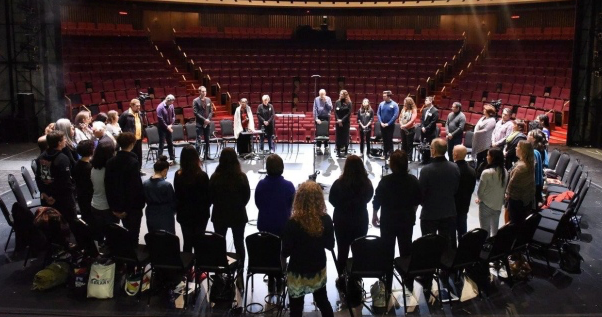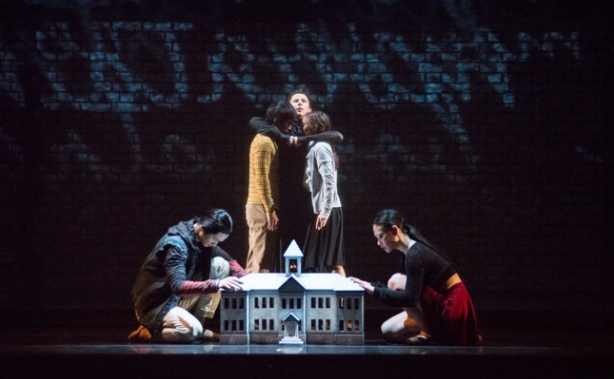Your Online Friendship Centre
Exit Site
Your Online Friendship Centre
Sarah Garton Stanley has healing on her mind.
The National Arts Centre’s interim facilitator of Indigenous theatre and associate artistic director of English theatre is looking forward to learning about and acknowledging the past as she works on establishing the first ever department of Indigenous theatre at the NAC.
At the end of March, the NAC announced it will be creating a department of Indigenous theatre in the coming years. The department will decide on an artistic director in 2017 and will begin its first season of programming in the fall of 2019.
In 2014, the NAC, Indigenous Performing Arts Alliance and Debajehmujig Storytellers gathered at the Banff Centre to examine First Nations, Métis and Inuit work on this land. During their stay at the Banff Centre, these groups pooled their knowledge and assembled the Indigenous Body of Work–an ever-growing list of all Indigenous performance pieces in Canada. The immensity of the Body of Work helped in prompting the NAC to introduce a theatre department dedicated exclusively to these works.

Over the past decade, artistic directors at the NAC would ensure that more and more Indigenous works made their way into English theatre programming each year. Subsequently, Indigenous works also started to show up in NAC dance productions, the orchestra and in NAC-produced festivals, such as the Northern Scene Festival. The Indigenous theatre department is a natural progression to make room for and celebrate Indigenous artistic creation.
“The Indigenous theatre department will be led and managed by Indigenous artists and administrators and will add enormously to the amount of content we see at the NAC,” Garton Stanley said. “But I think it will also impact how the NAC operates. We are all excited to see what these impacts will be and how protocols–both those of the Algonquin Territory whose land the NAC is on–but also how the protocols of the various nations and peoples will impact present practice.”

Garton Stanley also hopes that producing more Indigenous performances at the NAC will inspire the creation of even more works. By building an Indigenous touring network and increasing the profile of Indigenous performing arts across the country, she hopes that more spaces created and led by Indigenous artists will emerge.
When it comes to the power of arts and culture, Garton Stanley knows quite well that artistic expression presents an opportunity for healing and reconciliation.
“It is my hope that we can all heal and grow together as we tell and hear more stories about this land and this country that we now call Canada,” she said.